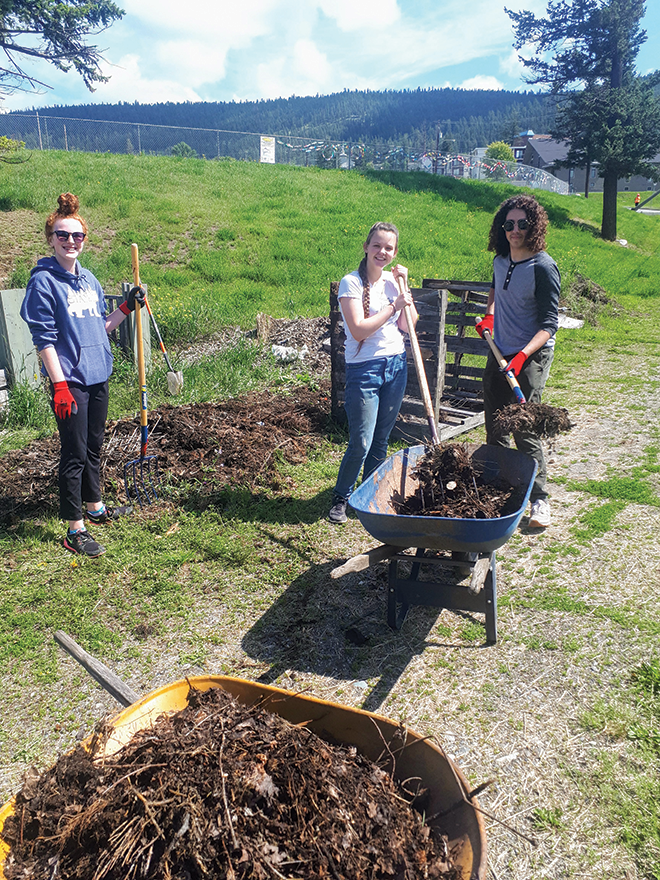Young adults aged 15-30 are invited to volunteer with the Invasive Species Council of BC’s (ISCBC) Healthy Habitats project to help prevent the spread of invasive species in British Columbia. Volunteers will benefit from training and leadership opportunities while developing and enhancing their skills. ISCBC co-ordinates efforts to tackle invasive species across the province and is pleased to also develop BC youth through this project.

Early this summer, ISCBC initiated the exciting new volunteer project for young adults in Cariboo, Kamloops, and Vancouver. The project aims to provide hands-on opportunities for young people who are passionate about enhancing their local environments. Participants will gain from training, mentoring, and being part of a growing network of like-minded individuals across BC. With notable and harmful invasive species such as giant hogweed and Japanese beetle affecting landscapes and communities, having a network of young adults trained in the prevention and management of these species will benefit the communities in which they live and work.
Working in teams guided by ISCBC facilitators, volunteers create innovative and fun projects to help protect their communities from new and spreading invasive species. Imagination is encouraged when designing the projects, which can be based locally or can even be virtual. Project ideas include producing a social media video, adopting a local park, restoring a beach, and running a community weed pull. Volunteers keen on photography and writing could contribute by blogging. Budding event planners can gain valuable experience by helping plan the 2020 youth summit.
In one healthy habitat project in Williams Lake, volunteers are building a community composter with signs informing gardeners of the importance of not composting invasive species. In Vancouver, volunteer teams have been creating educational art murals. Kamloops projects include co-ordinating invasive weed pulls and collecting insects called weevils to help control the invasive plant knapweed—a process called biocontrol.
While some community projects have started, there are plenty of opportunities to join from now until March 2020. As ISCBC continues to expand its network of volunteers in the Cariboo, Kamloops, and Vancouver areas, young adults interested in building healthy habitats are encouraged to volunteer today. Have fun experiences in an inclusive environment while building your resume and gaining professional references. Sign up today at bcinvasives.ca/volunteer.
About the Invasive Species Council of British Columbia
The Invasive Species Council of BC is dedicated to keeping our landscapes and communities free of invasive species. It provides a co-ordinated, province-wide approach to reducing the impact of invasive species in BC. The ISCBC unites efforts across the province and collaborates with a variety of partners to develop unique solutions for the wide variety of ecosystems across BC. For more info, contact Invasive Species Council of BC#100 – 197 North Second Avenue Williams Lake, BC V2G 1Z5, BC, invasives.ca, [email protected], or 250-305-1003 / Fax: 778-412-2248.

